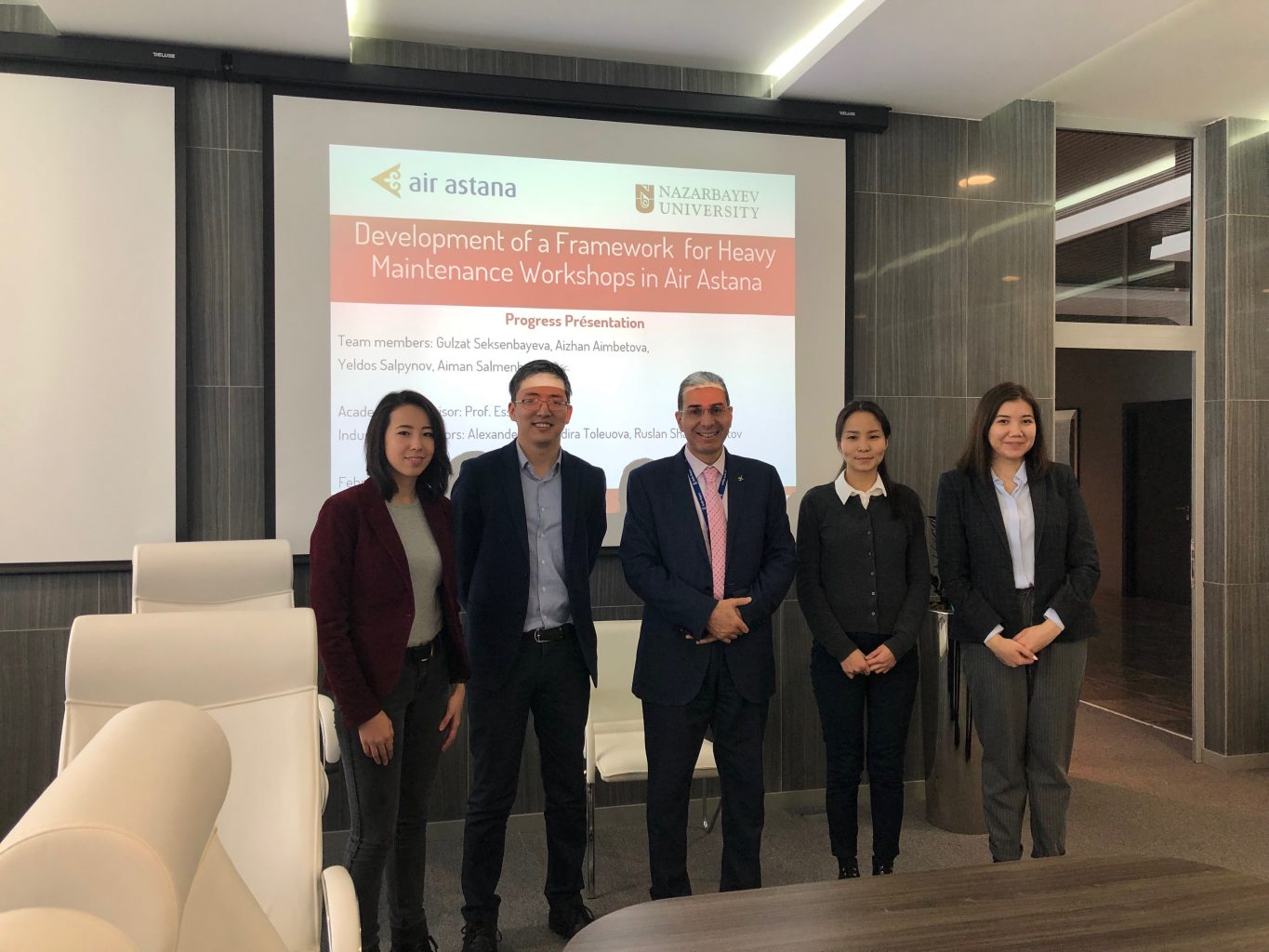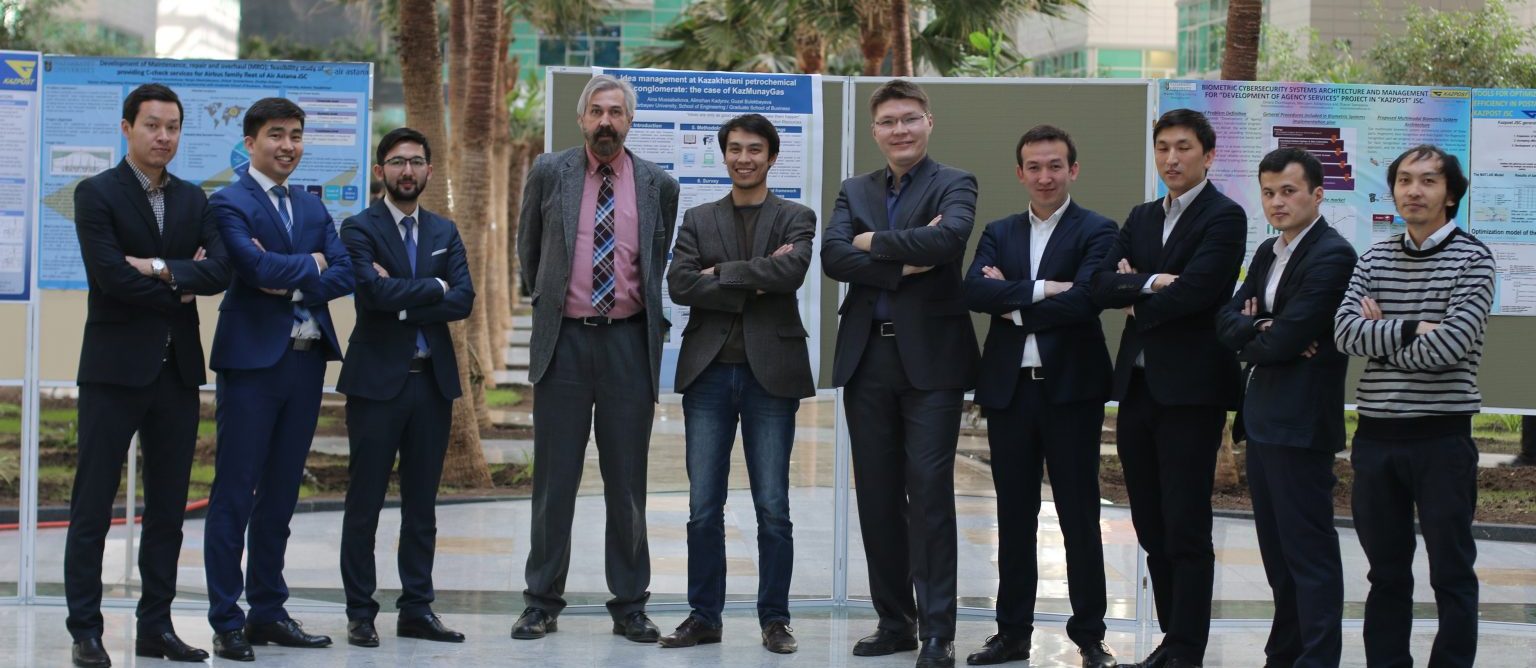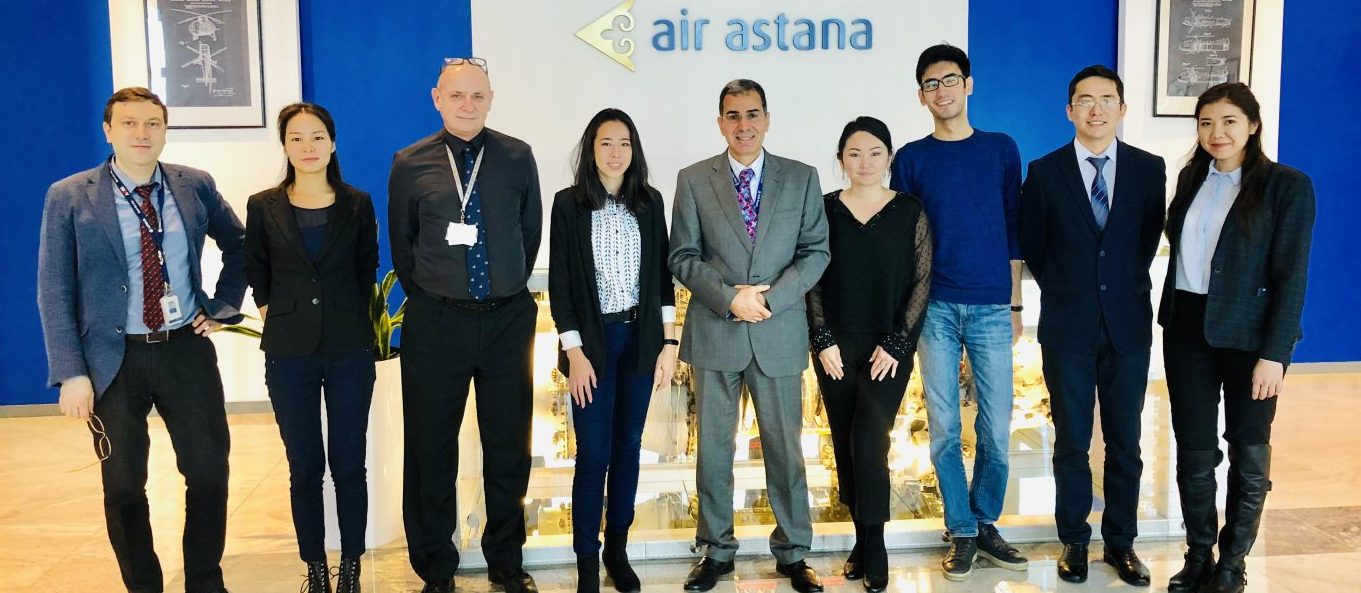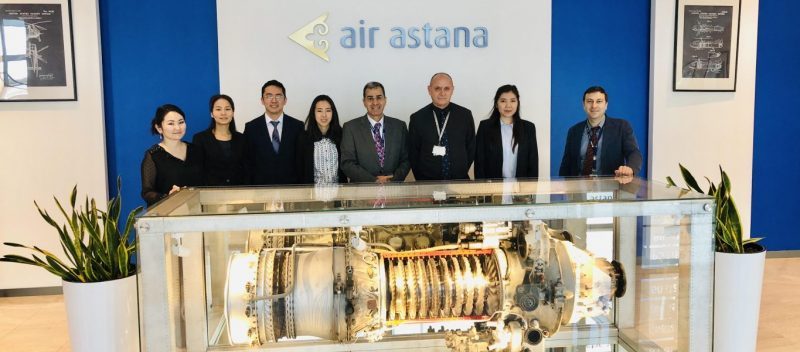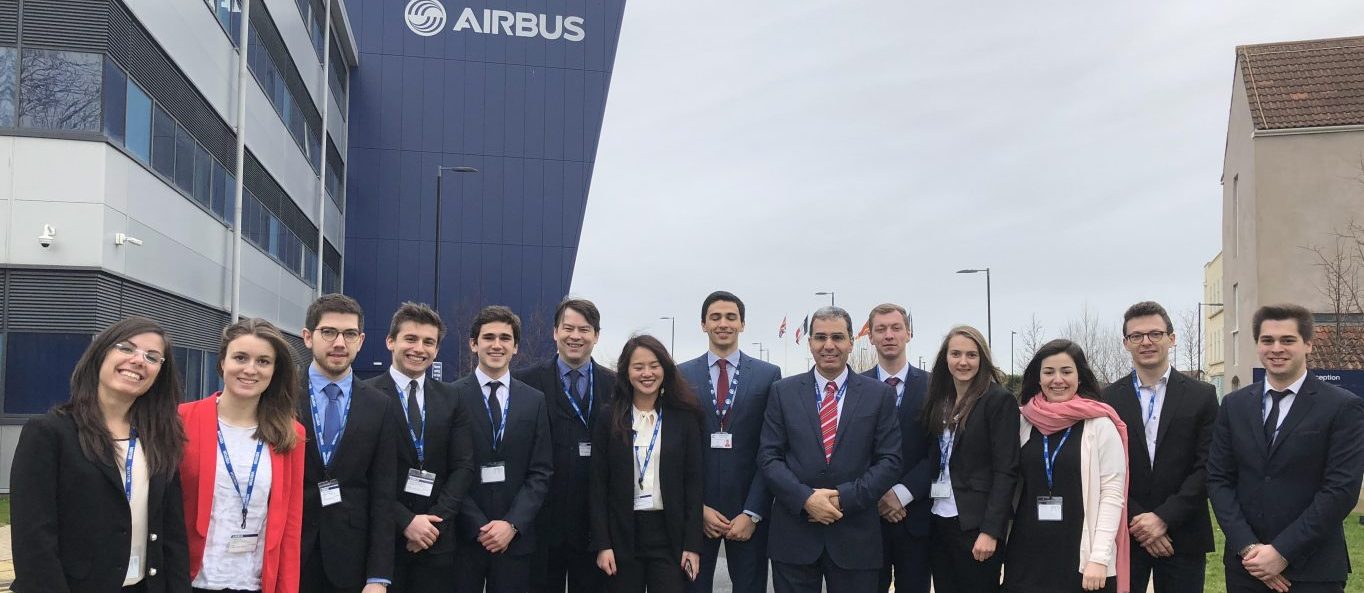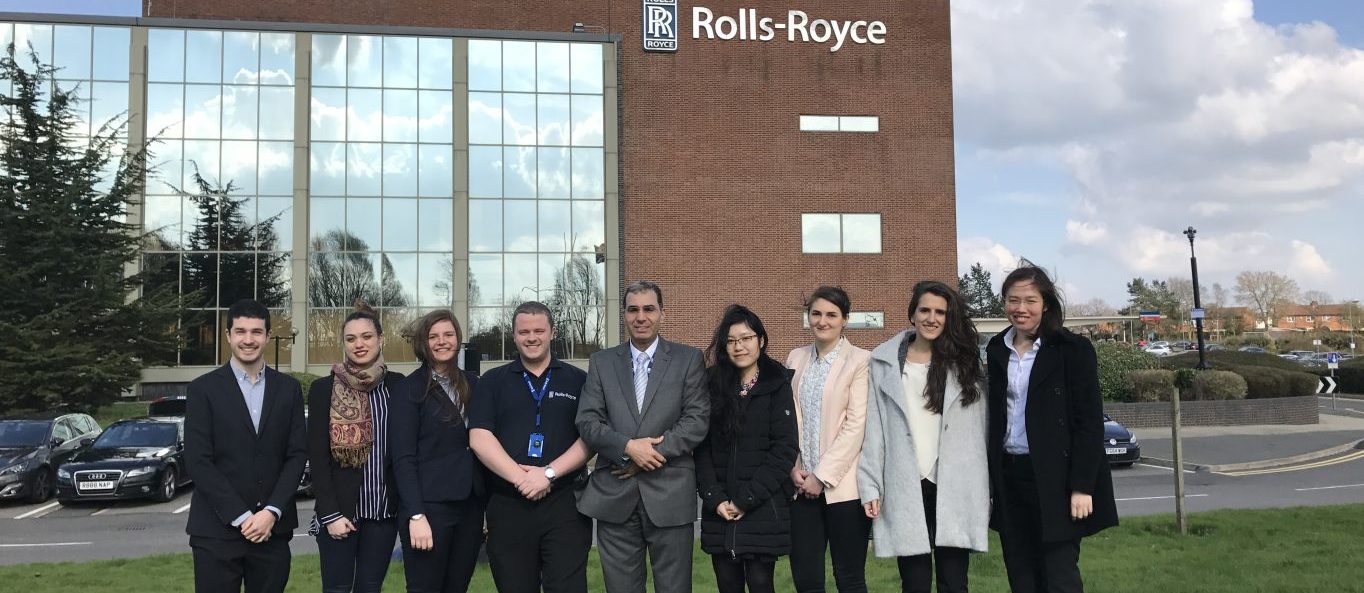
Industrial and Systems Engineering MSc
(Focus: Industrial Digitalization and Maintenance Engineering)
Online registration is now open!

Contact us:
e-mail:
seds_admissions@nu.edu.kz
Телефон:
+7 (7172) 706423 , +7 (7172) 694536 (Program related questions)
Admissions Сall-center:
+7 (7172) 70 65 55


The specialist skills of industrial digitalization and maintenance engineering are vital to lead productivity enhancement. You will gain knowledge and capability to manage digital transformation and maintenance engineering improvements in industrial companies and organizations to make an immediate contribution to a company’s performance and operations. You will have the option of selecting elective courses from a specific area (industrial digitalization or maintenance engineering) of specialization or from both areas.
Who is it for?
This program creates next generation of technical leaders and managers who will be able to drive digital transformation and implementation, and maintenance engineering for products, engineering services and enterprise development. This graduate program is suitable for students or companies employees who have undergraduate degree in engineering (mechanical, electrical, chemical, civil, and aerospace) or science (robotics, computer science, physics and chemistry). The program is formulated to provide advanced skills and knowledge at graduate level for individuals working in academia, industry or research centers in Kazakhstan or abroad.
Why this program?
The program combines Nazarbayev University’s expertise for delivering high quality Master in both Industry 4.0 and maintenance engineering. The program provides a comprehensive technological and scientific knowledge for engineers in two key areas namely Industrial Digitalization and Maintenance Engineering which are consistent with today´s technological challenges in many industrial companies and organization. There is a strong emphasis on applying knowledge in the industrial environment and all teaching is in the context of industrial application.
This program is the first of its kind in Kazakhstan and the region which has industrial digitalization transformation and maintenance engineering themes. The program delivers state-of-the-art scientific and technological education to prepare the next generation of professionals to lead the fourth industrial revolution in Kazakhstan. It enables combining rigorous academic learning, practical work and real life experience through industry sponsored project in preparation for careers in engineering extended enterprise.
The program shares few courses with Master of Engineering Management (MEM).
Aims
The main strategic goal of the program is to create next generation of technical leaders who can drive industrial and systems engineering as well as digital transformation and implementation, and maintenance engineering for products, engineering services and enterprise development to make an immediate contribution to a company’s performance and operations.
The overall aims of MSc-ISE program are to:
(1) Provide postgraduate learners with an appreciation of the current and future tools, methods, knowledge and skills of industrial and systems engineering including digital tranformation and maintenance engineeing necessary for a successful career in local and global organizations;
(2) Support the progression of engineers of all disciplines to industrial and systems engineering including digitalisation and maintenance engineering roles in both private and public sectors;
(3) Develop future leaders in industrial and systems engineering, digital transformation and maintenece engineering by providing a state of the art and applied curriculum to high potential students with science and engineering backgrounds;
(4) Promote the importance and appreciation of industrial and systems engineering as well as digitization concepts and maintence enginering in industry.
Methods
The MSc program provides advanced learning and teaching methods including:
(i) individual and group work;
(ii) team building exercises for developing team dynamics skills;
(iii) design tasks for developing creativity;
(iv) delivering and attending project-research presentations to enhance their communication skills; and
(v) group discussions among students and faculty in order to develop personal integrity and cultural tolerance.
1. An undergraduate degree (Bachelor’s degree or equivalent).
During the application period final year students may submit official current transcript for consideration.
2. A minimum CGPA of 2.75 out of 4.0 (or equivalent).
3. High level of English proficiency.
The absolute minimum requirement for English language proficiency test reports for admission to the program is:
1) Overall IELTS test score of 6.5 (with sub-scores no less than 6.0) or the equivalent TOEFL score as posted on the ETS website;
2) Candidates with not sufficient IELTS score may be admitted to the ZERO-year program:
The absolute minimum requirement for English language proficiency test report for conditional admission (NUZYP) is an overall IELTS test score of 5.5, with no more than one sub-score of 5.0, or the equivalent TOEFL scores as posted on the ETS website;
3) Applicants, at the discretion of the Admissions Committee, can be exempted from submitting the language proficiency test report if:
- one of their earlier academic degrees was earned in a country with English as the language of official communication, academic instruction and daily life;
- an undergraduate and/or graduate degree was earned in a program which was officially taught in English.
4. Strong mathematical skills as demonstrated by a test administered by the School on a set date. Applicants who provide valid GRE or GMAT test certificate may request exemption from mathematical skills test;
5. High motivation and strong interest in the program as outlined in a statement of purpose;
6. A curriculum vitae;
7. Two letters of recommendation.
Application package checklist:
1. Complete Application form;
2. National ID (for the citizens of the Republic of Kazakhstan) and passport (for international applicants);
3. Official document confirming name change (if applicable);
4. Bachelor’s (or equivalent) degree diploma with transcript;
During the application period final year students may upload official current transcript for consideration.
5. IELTS or TOEFL certificate valid as of date of online documents submission;
6. Document confirming English as the language of instruction (only for applicants who earned their degree in a program which was taught in English and request an exemption from submitting IELTS or TOEFL).
Applicants should provide a detailed certificate/reference from the university indicating the number and list of subjects completed in English.
7. Curriculum vitae (up to 2 pages);
8. GRE/GMAT certificate valid as of date of online documents submission (if applicable);
9. Statement of purpose (up to 1 page);
10. Two confidential letters of recommendation (at least one academic reference) written within the last 12 months (to be provided by referees electronically or in hard copy after receiving an email request);
11. Consent for Applicant’s personal data processing (according to the template in applicant’s personal account).
Important:
All required documents indicated above (excluding letters of recommendation) must be uploaded by candidates to the Personal account before the indicated deadline.
All submitted documents shall be in English or with notarized English translation.
Submission of a complete application package does not guarantee admission to the Program.
Applicants recommended for admission must provide hard copies of all documents as requested by the Admissions Department within established period of time.
Applicants who obtained their degree diplomas/certificates from foreign education institutions must request their official transcripts to be sent directly to the University: 010000, Astana, Kabanbay Batyr Ave., 53, Nazarbayev University, Admissions Department.
Learning Outcomes
On successful completion of the program, graduates will be able to:
- Explain the concepts and technologies of industrial and systems engineering including industrial digitalization and maintenance engineering;
- Critically review and analyze scientific literature in their domain and develop personal research capabilities;
- Undertake independent research on a subject relevant to industrial and systems engineering areas involving project planning, development of leadership skills, evaluation of results, and discussion of findings and writing a thesis;
- Identify organizations digital transformation challenges by employing digitization knowledge, principles, techniques and skills;
- Examine the application and awareness of the impact of industrial and systems engineering on a company’s engineering processes and strategy development;
- Demonstrate independently and as part of a multi-disciplinary team the ability to apply practical and rigorous approaches to problem solving and research;
- Communicate effectively and confidently research work and technical leadership capabilities to the general public as well as to experts in informed debate.
Core courses
This course aims to provide a systematic understanding and knowledge of key concepts and principles for digital transformation and its current practices, tools and processes and future development. The course will also provide hands-on experience using digital transformation tools and methods to enhance product development and enterprises. The course topics include digital tools, methods to support continuous improvements, design for Industry 4.0, smart product, virtual and augmented reality (VR&AR), digital twin for product development, model based definition/enterprise, lean digital workflow for product development, and digital transformation industrial case studies.
This course aims to provide a systematic understanding of the principles and concepts of maintenance techniques and the characteristics of maintenance systems as well as investigating maintenance procedures in a variety of industrial sectors and how they contribute to the competitiveness and quality of an enterprise and its products and services. It includes the main methods for developing a modern maintenance program for engineering service, products and industrial facilities. It provides a comprehensive understanding of theory and practice of total productive maintenance strategies to achieve high production availability, and address safety and environmental issues.
Optimization is the problem of making decisions to maximize or minimize an objective in the presence of complicating constraints. This course will cover theories, methods, and applications of linear programming, integer programming, nonlinear programming, network models, decision analysis and games. Students will learn optimization methods and their applications to problems in engineering and business. Optimization can bring efficiency throughout the organization and may be used in the design and analysis of engineered systems of all kinds. The course emphasizes on modeling, the process of taking a real world problem and transforming it into a formulation that can then be solved by the optimization methods. Throughout the course, Microsoft Excel will be used as a modeling environment, using add-in programs as necessary. Familiarity with Excel is an important prerequisite for this course.
This course explores a framework encapsulating the entire systems engineering discipline and addresses the topics of systems engineering relevant to all professions associated with the complex human-made systems. The course identifies methods for thinking about large, complex problems as an integrated whole, capturing the problem and documenting it systematically; then decomposing the problem into smaller units that can be designed, built, and integrated to achieve the desired result.
This course covers the following topics: Quantitative analysis of uncertainty and risk for engineering applications; Decision analysis; System reliability; Estimation of distribution parameters (method of moments, maximum likelihood, Bayesian estimation) and regressions; Data mining; And Design of experiments.
This course addresses the primary need for graduate students to undertake formal training that will help them in understanding how to conduct their research. The course will develop student’s understanding of research plan and engender skills enhancement for reading, interpreting, writing and presenting key ideas. The course will also instill an understanding of a variety of research methods and ethics, and implement appropriate strategies in lecture and workshop settings.
This graduate level course combines the application of rhetorical analysis to stylistic conventions of writing in engineering, with a focus on clarity, conciseness, and coherence. Students will employ process writing to produce genre specific writing familiar to Engineers, including research reports scientific papers designed for specific audiences. This course also trains students to deliver effective and appealing professional and scientific presentations, with attention to best practices in the use of technical English and oral communication.
This course enables students to gain and apply basic research knowledge and skills to select their research projects in Industrial and Systems Engineering. The course develops the following knowledge and skills:
- Identifying the area of research interest;
- Surveying of state of the art for the area of interest;
- Identifying the research topic and associated issues;
- Understanding of the social, cultural, global and environmental issues associated with chosen research topic;
- Writing a research paper based on the literature survey under the supervision of a faculty member;
- Presentation of a seminar and being assessed by a panel.
This course intends to give students the opportunity to develop the research proposal. The course develops the following knowledge and skills:
- Preparation of a thorough and comprehensive literature review to support the research proposal;
- Formulation of the research hypothesis;
- Developing and justifying the methods to conduct the research.
This course intends to give students the opportunity to fully implement the research proposal and bring it to a conclusion. The course develops the following knowledge and skills:
- Planning and conducting, independently, research at an advanced level;
- Critically analyzing research results;
- Effectively presenting their results to a wide audience;
- Effectively compiling their results in the form of an authoritative thesis.
Elective courses
The aim of this course is to provide students with knowledge and understanding of the key concepts of digitization and knowledge engineering as well as their current practices, tools and processes. It give you an understanding of the types of knowledge, techniques and systems used in building knowledge based systems.
This course aims to provide working knowledge on IoT hardware and software concepts and options. It enable students to analyze IoT system management, design and architectures. The course covers IoT machine to machine interfaces and their enablers. It includes secure IoT systems in terms of its reliability, privacy, trust and ethics. The course provide an understating of IoT business model and data ownership.
The aim of this course is to provide a systemic understanding of the concepts, tools and techniques for modelling and simulation employed by both manufacturing and engineering service companies for business processes improvements. It covers the development process of enterprise modelling and business process reengineering.
This module aims to complement the core material by engaging students in an in-depth study of important topics in cyber security; examples include domain-specific security, human factors, legal issues, and interdisciplinary issues in cyber security.
In addition, as digital devices have proliferated, the user has become an integral part of many systems and has emerged as a prime target for attack. Thus, the module addresses issues such as the users' awareness of false claims of identity and their ability to identify such claims.
| The course aims to provide a systematic understanding and knowledge of the enterprise systems principles and how to use these systems to manage an enterprise. The course will also provide hands-on experience using SAP as a leading industry-standard software application. |
This course covers advanced data-mining and machine learning methods now possible in business and research; Introduction to software for data-visualization and pattern recognition in Big Data including introduction to the latest technologies for distributed data storage, indexing, search, retrieval, and analysis. Students will analyze real-world data and communicating actionable findings in compelling form.
The aim of this course is to provide general knowledge about the theory and application of operation and maintenance engineering of system, process and infrastructure. Knowledge gained through this course can be applied for effective operation and maintenance.
The aim of this course is to provide an in-depth understanding and ability to perform reliability modelling for both repairable and non-repairable systems. It includes capturing and optimizing the maintenance requirements and identify reliability data for through-life engineering services.
This course aims to provide an introduction to Cost Engineering principles, modelling and practices in industry that contributes to the development of affordable products and engineering services. It covers the impact of uncertainty and obsolescence management on cost.
This course aims to develop the student’s understanding and practice of business process analysis and engineering to improve companies’ performance and operation. It covers business process management and its application in manufacturing and service industry. The course includes business process continues improvements.
This module is offered for graduate students who are interested in the design optimization of engineering systems considering several aspects. The objective of this module is to present tools and methodologies for performing engineering optimization in a multidisciplinary design context. This module will cover all three aspects of the problem: (a) the multidisciplinary requirements of the problem, (b) the appropriate guidelines and methodologies applied in modelling for design optimization and (c) the employed tools and methodologies for optimization. However, focus will be given in the modelling requirements and the modern optimization methods that are used to address such problems.
The terms Quality and Lean are recognized as the key for the companies which want to satisfy their customer and efficiently manage their resources. The aim of Quality Management is to produce more reliable products and services by decreasing the variability. And the aim of Lean on the other hand is to increase the productivity by value creation and elimination of waste. The objective of this course is to teach students the definition of both quality and lean with differences and similarities and then implementation of them in production and service industries. This course covers the general concepts, and principles of quality management and lean production such as customer focus, value creation, process management, value stream mapping, waste removal, visual management and continuous improvement.
Projects are one of the key mechanisms for achieving organizational goals and implementing change, whether it is the design and launch of a new product, the construction of a new building, or the development of a new information system. This course will focus on defining project scope, developing project plans, managing project execution, validating project performance and ensuring project control. Additional topics covered include decision making, project finance, project portfolio selection and risk management. Business objectives are increasingly solved by projects. Many projects fail to produce the expected results, are over budget, or not completed on time. Good project management significantly improves the likelihood of a successful project. In addition, the course combines theoretical knowledge and practical training through the use of MS Project 2010.
It is designed for business leaders responsible for implementing projects, as well as beginning and intermediate project managers.
This course explores issues related to planning and controlling the processes used to produce the goods and services provided by an organization. Managing these complex processes including resources such as human, materials, inventories, and facilities can be quite challenging. The course will introduce students to the functional area of operations and will increase their knowledge of how a firm's operations interface with the other functional areas of the organization, familiarize students with the various issues and problems that traditionally arise in the management of operations within both manufacturing and service organizations, and acquaint students with some of the methodologies in the handling and resolution of operations issues and problems. The contents of the course include both Production Management and Service Management.


